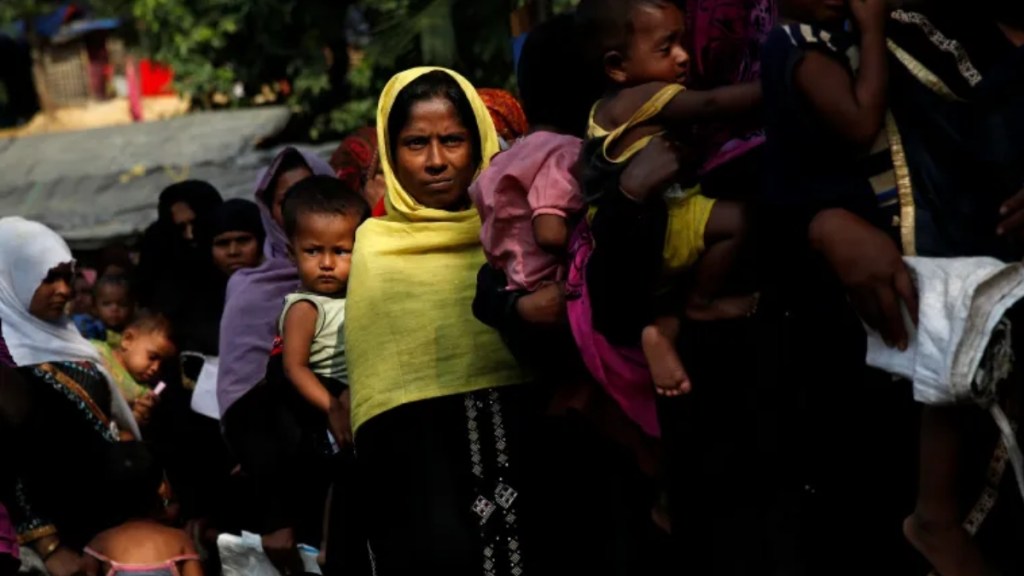Neighbouring Bangladesh, is facing a potential food shortage, with the situation growing increasingly dire in recent weeks. While Bangladesh has had a long-standing trade relationship with India, the real threat to its food security is coming from a more unexpected source—Myanmar. The conflict in Myanmar, specifically the control of the border regions by the Arakan Army, could disrupt vital rice imports and exacerbate Bangladesh’s ongoing food crisis.
The Arakan Army’s Growing Influence
The Arakan Army, a rebel group in Myanmar’s Rakhine province, has recently expanded its control over key areas along the Myanmar-Bangladesh border. This includes not only land border crossings but also maritime trade routes. The Arakan Army’s actions are having a profound impact on the region’s food supply chains, as Myanmar has historically been a major rice exporter to Bangladesh.
In the past week, the Arakan Army seized the last Myanmar military outpost on the Bangladesh border, effectively cutting off a 270-kilometer stretch of the border from government control. The rebel group also claims to have taken control of the western command of Myanmar’s military junta. Videos have surfaced showing Myanmar soldiers being captured, further highlighting the destabilization in the region.
As a result, Bangladesh’s already precarious rice supply is at risk. Rice, a staple in Bangladesh’s diet, accounts for a significant portion of the country’s food imports, and Myanmar has been one of its primary suppliers. But with the Arakan Army controlling the key port of Mongdo, as well as key customs operations, Bangladesh’s rice shipments from Myanmar are now severely limited.
Bangladesh’s Strained Relations with Myanmar and India
This new development comes at a time when Bangladesh is grappling with a growing shortage of rice. The country has already asked India for assistance, requesting an additional 50,000 tons of rice to mitigate the shortfall.
The situation is further complicated by the deteriorating relations between Bangladesh and India. Recently, Bangladesh’s government has called for the extradition of former Prime Minister Sheikh Hasina from India, an action that has strained diplomatic ties. Bangladesh’s foreign policy on Myanmar is also at odds with regional powers. During a recent special meeting in Thailand with Myanmar, India, China, Laos, and Thailand, Bangladesh’s Foreign Minister made it clear that the country would not recognize the Arakan Army and demanded Myanmar take back the approximately one million Rohingya refugees living in Bangladesh.
The Arakan Army, which is composed largely of ethnic Rakhine Buddhists, is reportedly angered by Bangladesh’s refusal to engage with them. This has led the group to suspend the supply of rice and other essential goods from Myanmar’s Rakhine province to Bangladesh, compounding the country’s food insecurity.
The Rohingya Crisis: A Factor in the Food Shortage
Another layer of complexity in this situation is the ongoing Rohingya refugee crisis. An estimated 1 million Rohingya Muslims have fled Myanmar’s brutal military crackdowns, seeking refuge in Bangladesh’s Cox’s Bazar region. In recent days, Bangladesh has reported an influx of approximately 60,000 additional Rohingya refugees crossing from Myanmar. The Arakan Army has long been involved in the conflict with Myanmar’s military over the treatment of Rohingya Muslims, further complicating the political and humanitarian situation in the region.
Myanmar’s refusal to take back the refugees, combined with the ongoing conflict, has put immense strain on Bangladesh’s resources, particularly food. The loss of rice imports from Myanmar comes at a time when Bangladesh is already struggling to feed its population, especially in the wake of recent natural disasters that have exacerbated food insecurity.
India’s Role and Regional Tensions
Despite Bangladesh’s request for rice from India, there has been no formal response from New Delhi. At a weekly briefing last Friday, Indian Ministry of External Affairs spokesperson, Randhir Jaiswal, stated, “Trade between Bangladesh and India continues to function, and articles of trade are plying between both countries. There may be issues here and there, but by and large, trade is happening.”
Bangladesh’s food insecurity is tied to a broader regional dynamic that is influenced by both Myanmar’s internal conflicts and the shifting alliances and priorities of its neighbouring countries. The country’s reliance on external sources for rice, particularly from Myanmar, has made it vulnerable to disruptions in trade, and the failure of diplomatic efforts to secure food supplies could exacerbate an already dire situation.

